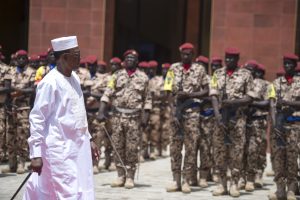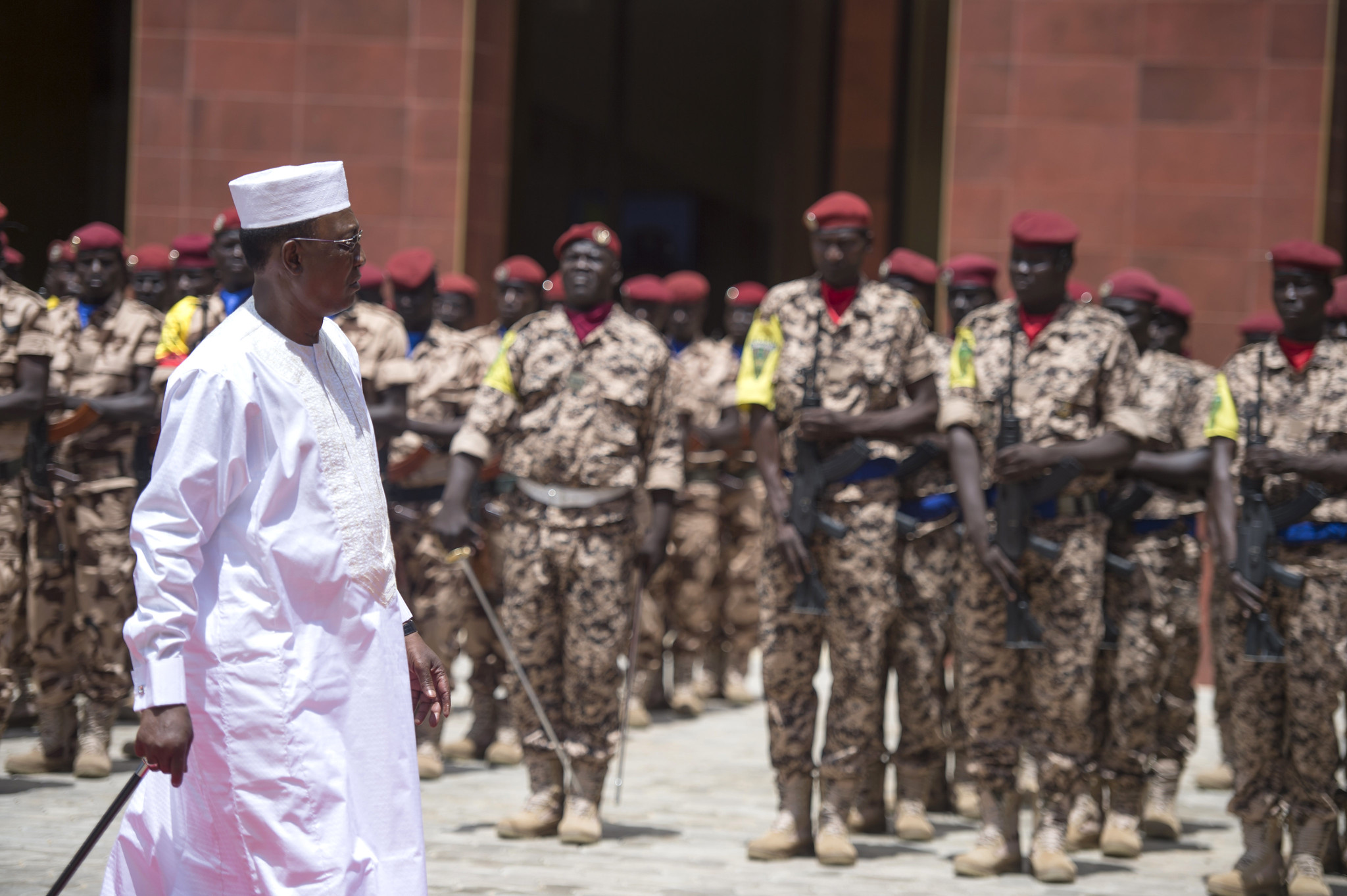
Swearing in ceremony of President Idriss Deby Itno of Chad in 2016. Photo: Paul Kagame, CC BY-NC-ND 2.0
More than a year after Chad’s former president was killed in battle, the central African country remains in turmoil and freedom of expression remains under attack.
Idriss Déby Itno was killed in April 2021 on the battlefront between government troops and rebels from the Front for Change and Concord in the north of the country. His death was announced just a day after provisional results from the 11th April president election showed he had won re-election.
The election result was widely seen as dubious. Leading opposition figure Saleh Kebzabo had withdrawn from the elections after family members of another candidate were killed during a deadly shootout.
Chad has been under the increasingly authoritarian grip of Idriss Déby Itno since 1990 when he seized power in a coup.
In March 2018, Déby had implemented a social media ban following widespread public protests against constitutional changes that would have allowed him to rule until 2033. The ban was lifted only 16 months later.
The country has been the target of regular internet shutdowns by the government. The KeepItOn coalition says there were more than 900 days of internet shutdowns, including throttling of internet speeds, total internet blackouts as well as the social media blocks, between 2016 and 2021.
After Déby’s death, the military took control, dissolving parliament and putting a transitional military council (TMC) in charge of the country under the leadership of Déby’s son Mahamat.
The council promised free and democratic elections within 18 months, following a national reconciliation dialogue that would involve parties from all sides.
In September, the TMC appointed a 93-member national transitional council to perform the functions of government. However, some prominent members of Wakit Tama, a coalition of human rights groups and opposition figures, who had denounced the coup were excluded for this.
That process has since moved slowly, and free and fair elections look unlikely any time soon. An inability to agree on who should be involved in the council and any national reconciliation dialogue has slowed the process to a crawl, although some of the parties are now in the Qatari capital Doha taking part in what is being called a pre-dialogue, a process that has already lasted two months.
The transition to fair and free elections has now been thrown into even greater disarray after a number of civil society leaders were detained during protests on 14th May organised by Wakit Tama.
During the protests, several symbols of France’s colonial power, including a number of Total petrol stations, were attacked and policemen injured. Wakit Tama and the four arrested have denied any involvement in the violence.
The four arrested were Gounoung Vaima Gan Fare, secretary general of the Union des Syndicats du Tchad, Youssouf Korom Ahmat, secretary general of the Syndicat des commercants fournisseurs du Tchad, Koudé Mbainaissem, a lawyer and president of the Association for Freedom of Expression, as well as Wakit Tama coordinator Max Loalngar.
The protests were intended to highlight human rights violations in the country, call for the inclusion of human rights defenders in the transition and oppose a continuing French military presence in Chad.
Opposition leader Saleh Kebzabo said the protests threatened the process of reconciliation.
Three days after the protests he tweeted, “In Doha, there is a Chad in miniature where nearly 200 Chadians have been engaged in a debate for two months to participate in the [national reconciliation dialogue]. All Chadians are waiting for this unique moment for a real rebuilding of the country, and I believe it is a unique opportunity.”
“During this time, we learn that other Chadians are preparing the [dialogue] in their own way by marches to ransack and loot, against the French presence in Chad. This is a false debate that risks hiding all our real problems, which are unfortunately many.”
The four are currently being detained at the high security Mossoro prison and will face a court hearing on 6th June, although none has yet been charged with any offence. Front Line Defenders believes that they are being targeted “solely as a result of their legitimate and peaceful work in defence of human rights”. Human Rights Watch calls the detentions “politically motivated”.
Despite the pre-dialogue in Doha, the government has now postponed the main dialogue on a transition to democracy to some unspecified date in the future. The omens are not good.





